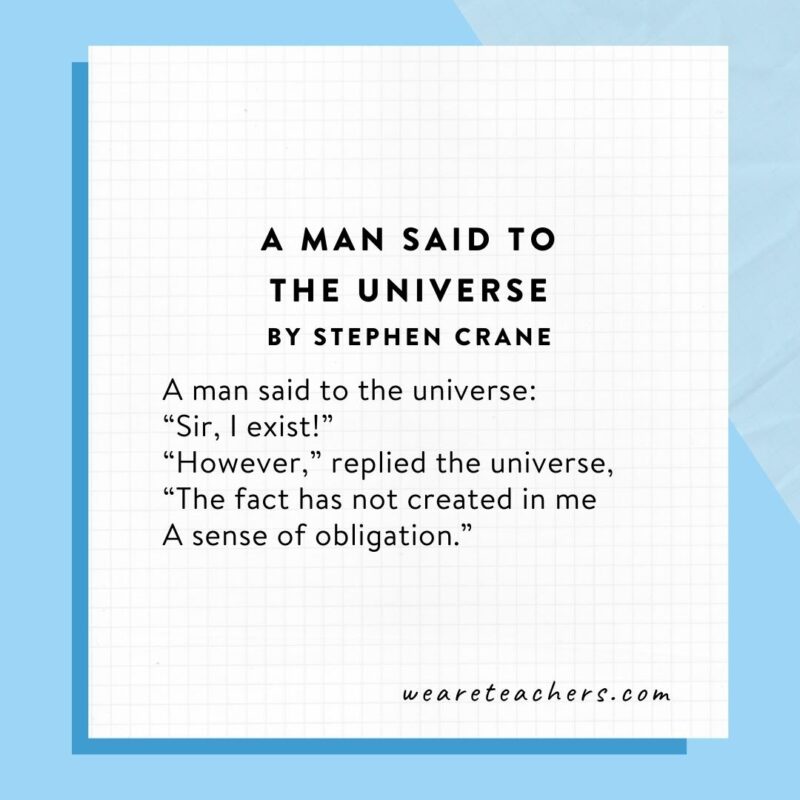60 must-share poems for middle and high school

[ad_1]
It can be difficult to know which poems will stimulate middle and high school students into deep and meaningful discussion and which will make them yawn. So we asked experienced teachers to share their favorite poems, the ones that always get a response, even from teens. Here’s what they had to say about the best poems for middle and high school students.
NB: Every classroom is different, so please be sure to review these poems for middle and high school students before sharing them to ensure they fit your learning environment.
Discuss symbolism with this short poem by Frost.
“Two paths diverged in the yellow wood,
I’m sorry I couldn’t travel together…”
Discuss the literal and metaphorical meanings in this poem.
3. Mice poem By Elizabeth Acevedo
“Because you are not my beloved nightingale
Because you are not the noble doe…”
Listen to the author herself perform her poetry.
“I lost my speech
The conversation I took.
When I was a little girl…”
This poem follows the pain and suffering that Joe experienced at Shubenacadie Residential School in Nova Scotia.
5. friend By Josephine Miles
“I met a man in a woolen refrigerator,
A friend of my friend.
What was his behavior?
“When they said those birds were metaphors
Why is it confined?
Between buildings
And buildings. no.”
Mention the dangers of misunderstanding in this poem.
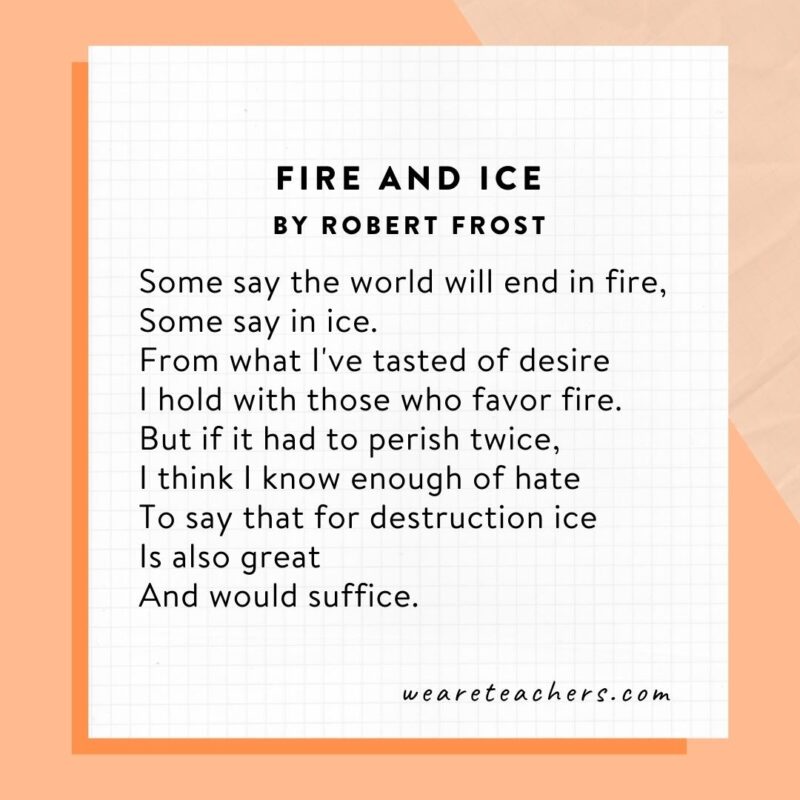
Frost does not skimp on this poem, as it is perfect for discussion and debate.
“I think I speak for the rest of us when I say
Sorry, sorry we left you with the chaos of our planet…”
EA documented this to raise awareness about the alarming rates of deforestation and the reckless destruction of our environment.
“The outlook was not great for the Mudville nine that day:
The score was four to two, and there was only one half left to play…”
Oldie but goodie!
“It sounds funny, but by keeping his dreams alive,
You have learned to breathe fresh air.
The late artist created a clear connection between rhythm and the deeper meaning of poetry and rap.
“‘is anybody there?’ said the traveler
I knock on the moonlit door…”
For science fiction fans.
“We wear the mask that smiles and lies,
It hides our cheeks and shades our eyes…
A response to the experience of being black in America in the late nineteenth century.
“You’re not wrong, whoever considers it
That my days were a dream;
But if hope flies away
One night or one day…
Poe was an expert in rhyme, and this poem is clear evidence of that.
14. Hit the deer By John Loomis
“You’re seventeen years old, drunk with tunnel vision,
Your father Firelin’s carriage swerves home…”
Students will not soon forget this poem, both in terms of the story and the sensory details.
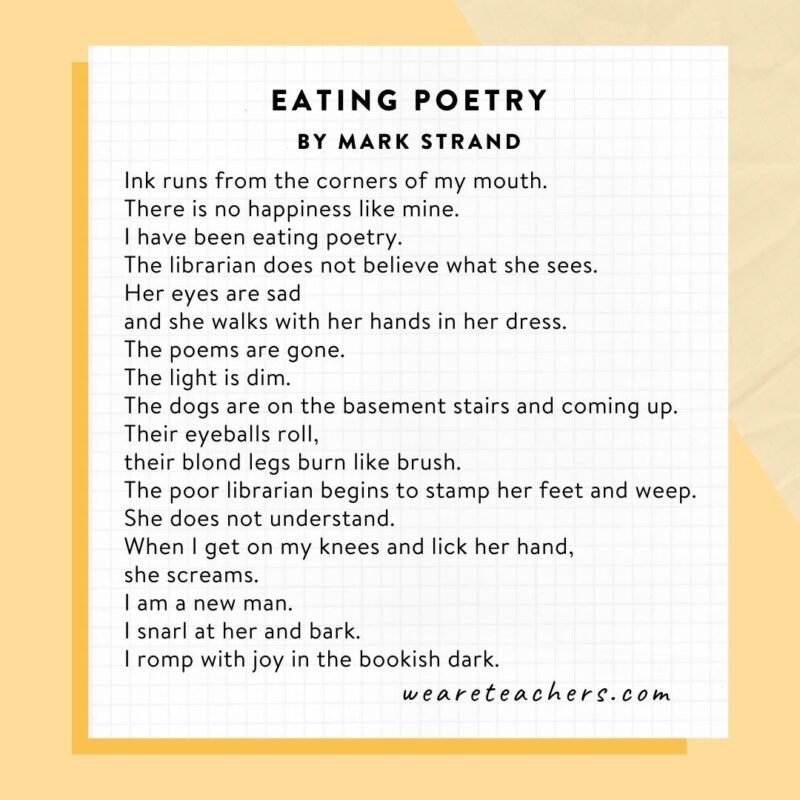
Read this poem to discuss meaning that goes beyond the literal words on the page.
“They have everything”
An example of what one line can do.
Lerman reacts to popular culture and has a disrespectful tone.
Any student who has ever felt upset or had to endure daily frustrations will relate to this poem.
It is a politically charged poem that remains true today, and Hughes’s poetry, especially “Mother to Son,” is timeless.
20. Beethoven By Shane Kuyczan
This poem is a poetic biography that links Beethoven’s story to the universal.
21. Orange By Gary Soto
Soto’s poem about trying to impress a girl shows what small moments reveal about ourselves and how those moments become embedded in our memories.
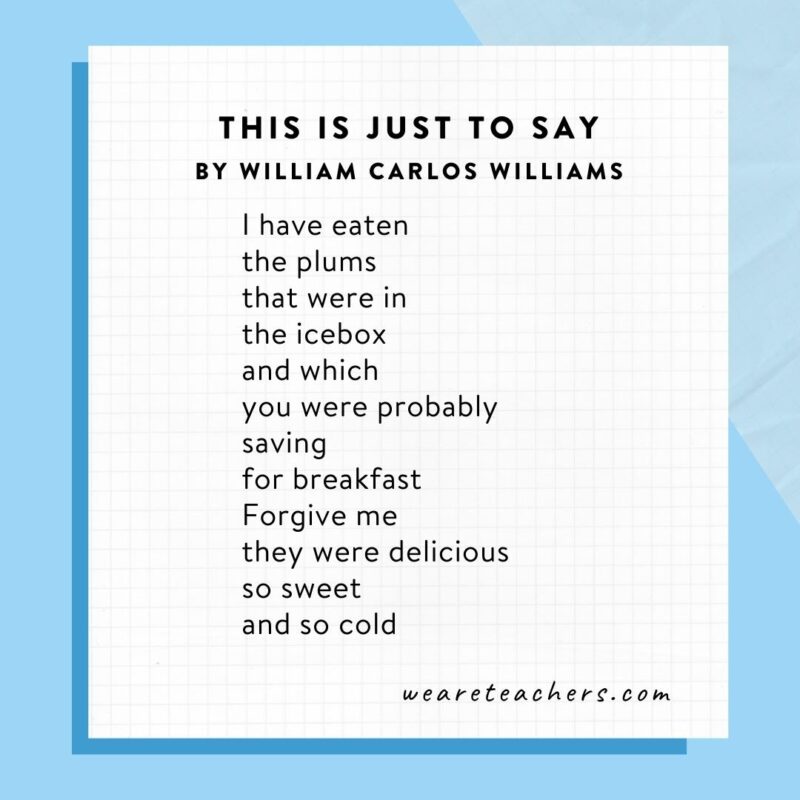
This poem leaves a lot of room for inference, which leads to great debate.
Label this poem to show how O’Hara uses references or humor.
24. Pass it on By Michael Lee
Lee’s poem creates snapshots of memory, creating lines and ideas for each student to capture and retain.
25. snow By David Berman
It captures the narrative in miniature with creative structure.
An uplifting political call to action that students should read right as they begin to determine what mark they can leave on the world.
Highlights the writing process, with tongue-in-cheek humor and challenge.
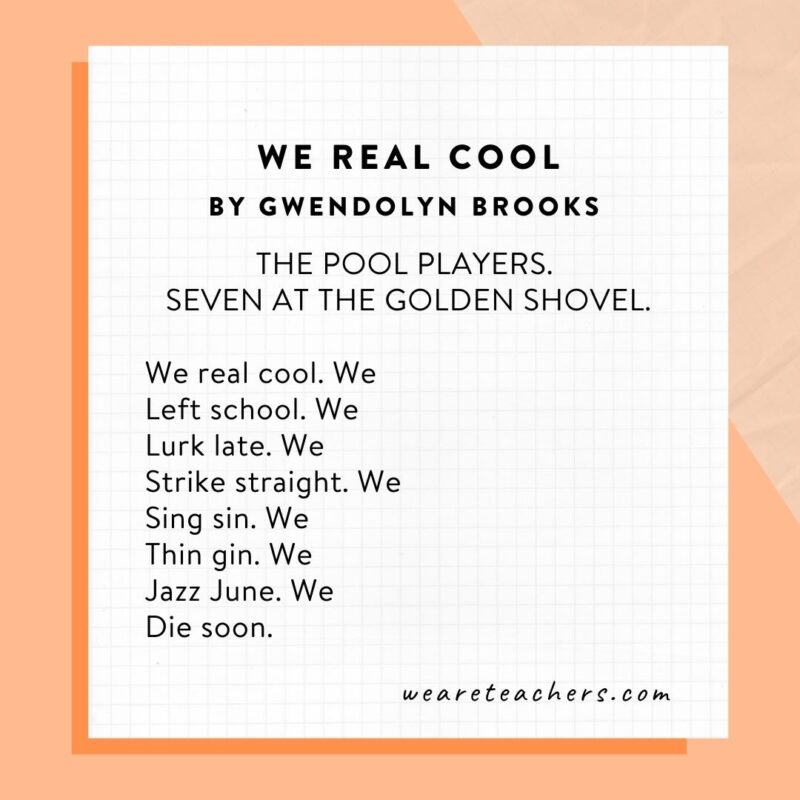
This poem is deceptive in its simplicity and leaves much to talk about. Be sure to discuss that internal rhyme!
Solid work to teach the elements of poetry (repetition, rhyme).
30. My door By Sylvia Plath
Plath is rarely a master of words, and this is no exception, as this poem is full of deep meaning.
Dickinson is very skilled at creating mood, but this time in contemplation.
32. Annabelle Lee By Edgar Allan Poe
A ghost story wrapped in a poem. Another classic Boo.
The rest of the poem is as funny as the title, and it’s fun to dissect and analyze how Neruda wrote about everyday things, like a tuna on ice.
Use this poem to teach ways to deal with viewpoints.
Nash’s comic poem makes fun of the use of similes and metaphors.
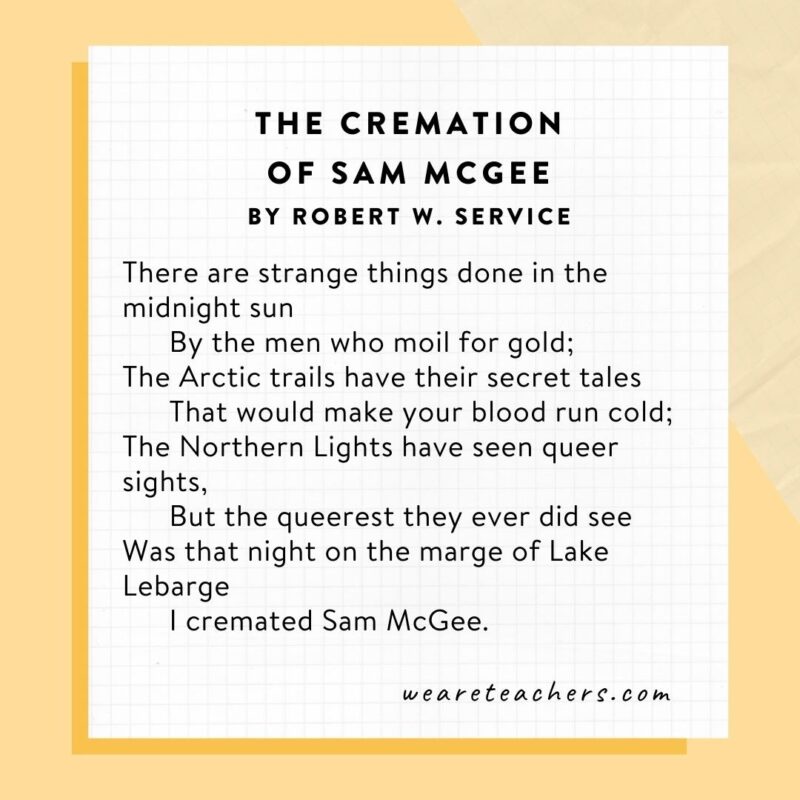
“Strange things happen in the midnight sun…”
When a bandit meets the innkeeper’s daughter, they instantly fall in love… while a rival eavesdrops.
“When Americans say man
Take liberties, they mean
He’s gone too far.
39. Mirror By Sylvia Plath
This poem speaks from the perspective of a mirror, sharing truths as the woman looks at her reflection.
The poet clearly depicts the elegance and beauty of this charming woman.
This short poem speaks volumes.
42. Richard Corey By Edwin Arlington Robinson
The surprise ending reminds us that not everything is always as it seems.
This poem encourages readers to make the most of every day.
44. tattoo By Ted Kooser
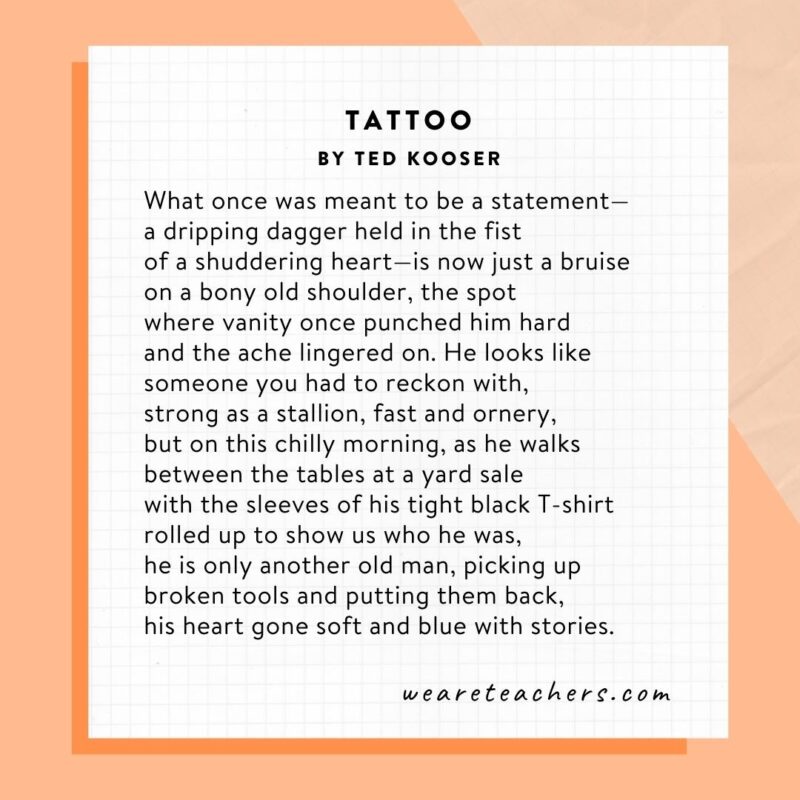
What stories can an old man’s tattoo tell us?
The author reminds us that whatever our circumstances, the nature of death remains the same.
A poem about identity and the desire not to be famous. An interesting poem to analyze today, when students have multiple pages on social media.
47. The Crow by Edgar Allan Poe
Have you ever read poetry if you haven’t read “The Crow”? It is one of Poe’s classic novels, perhaps because of the evocative and accessible language.
Wordsworth uses a lot of wonderful poetic devices in this poem. It’s a good idea to discuss metaphor and visualization.
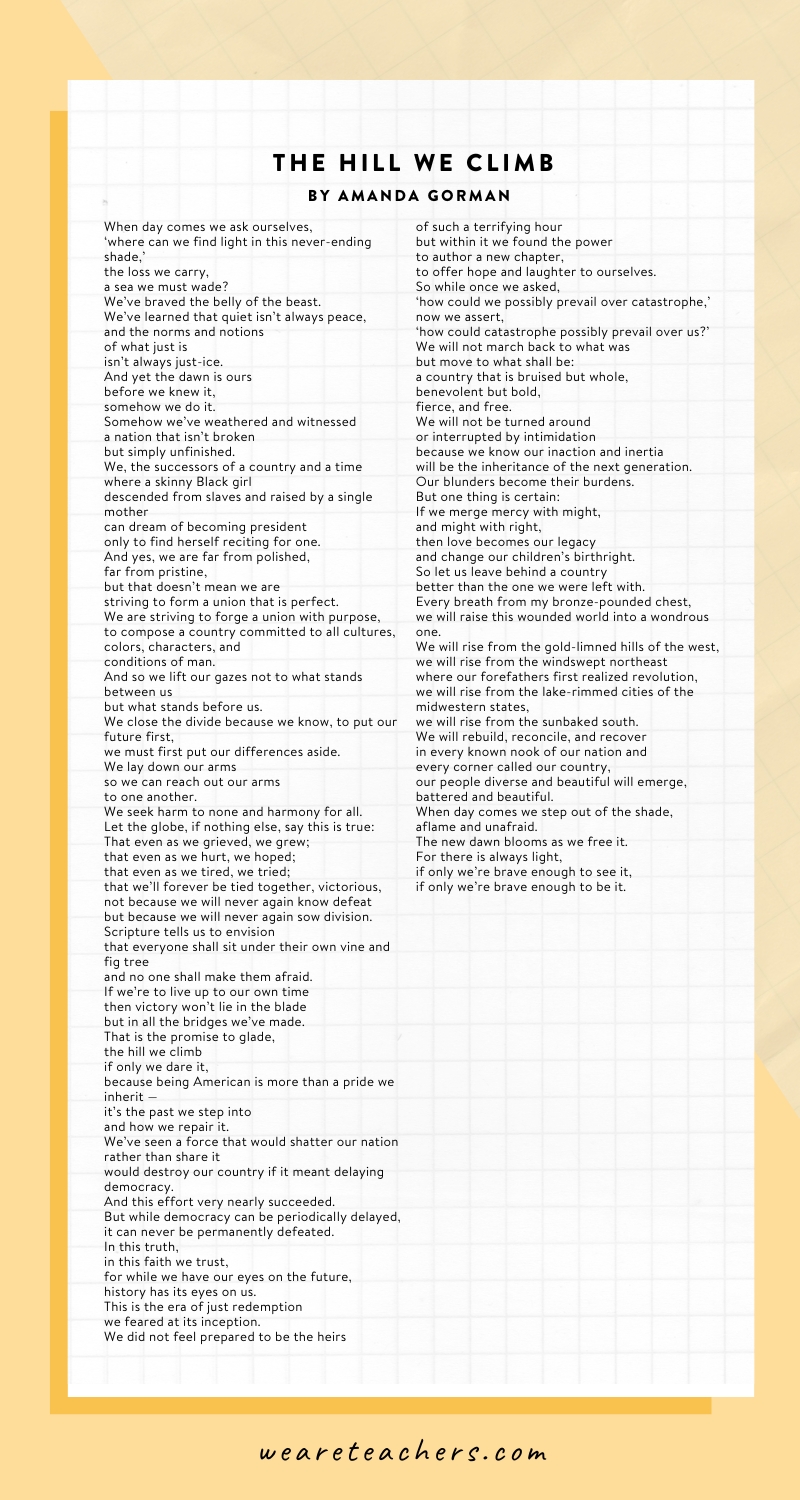
A wonderful, modern poet who resonates with young people. Students will love unpacking all the meanings in Gorman’s poem that was part of Joe Biden’s presidential inauguration.
50. if – By Rudyard Kipling
This poem will begin with some lively analysis as students make connections and deconstruct Kipling’s message, which still rings true today.
“Whose forest is this? I think I know.”
We recommend reading this poem on a snowy day, or at least a winter day, to capture the atmosphere of the prose.
52. Invictus By William Ernest Henley
“I am a spiritual leader.”
The last two lines of this poem are worth analyzing on their own. What does it mean to be the leader of your own soul? How much control do we really have?
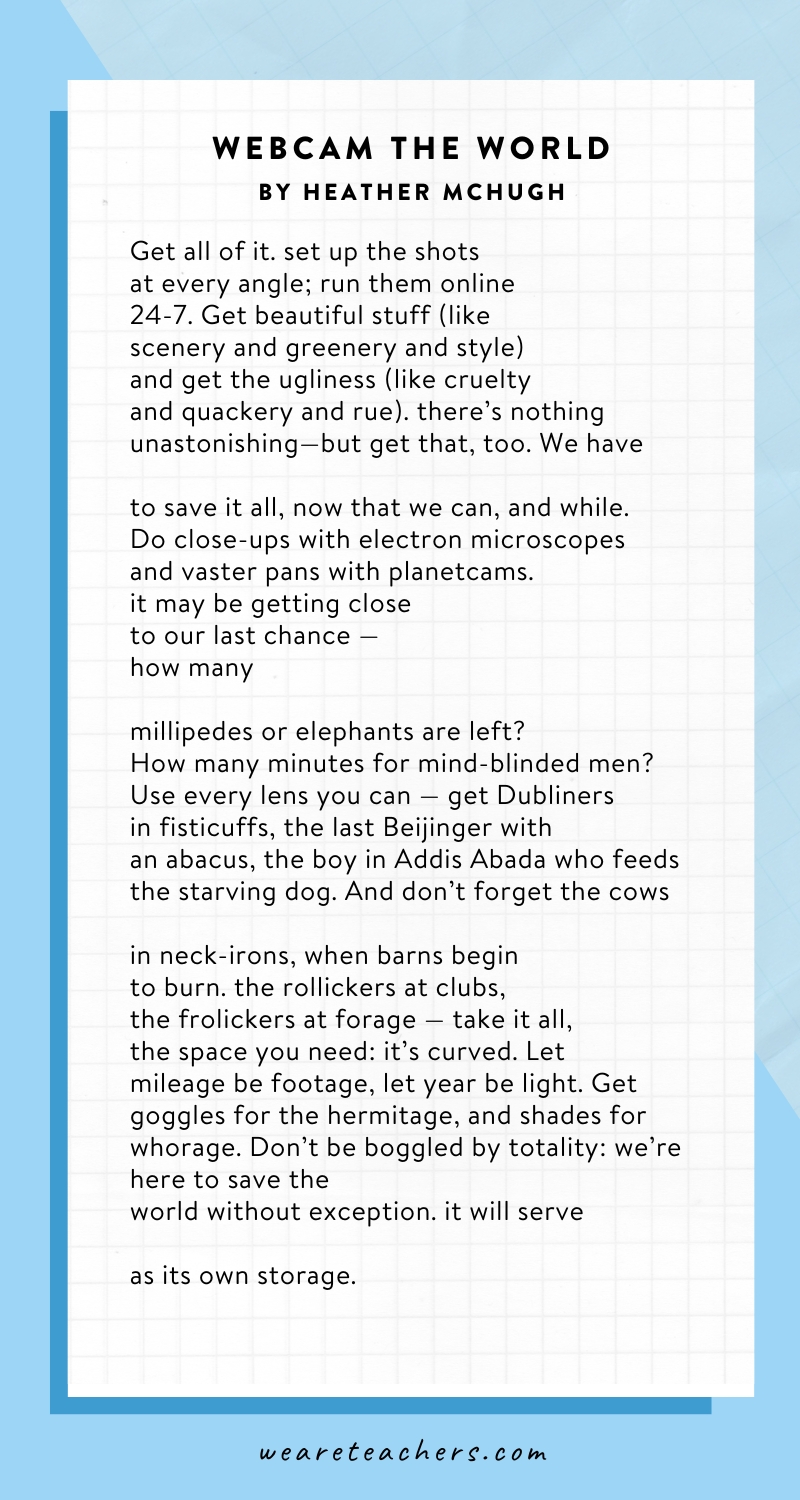
A statement about technology and nature, McHugh develops a very modern theme in a traditional-looking poem.
Stallings searches through her childhood dollhouse and reflects on what it means about childhood and the simple things in life. Even middle school students have nostalgia, and this poem will tap into that.
Another poem about perseverance. The message of this is that we learn through failure.
A reminder to students that they should be true to themselves and be proud of it.
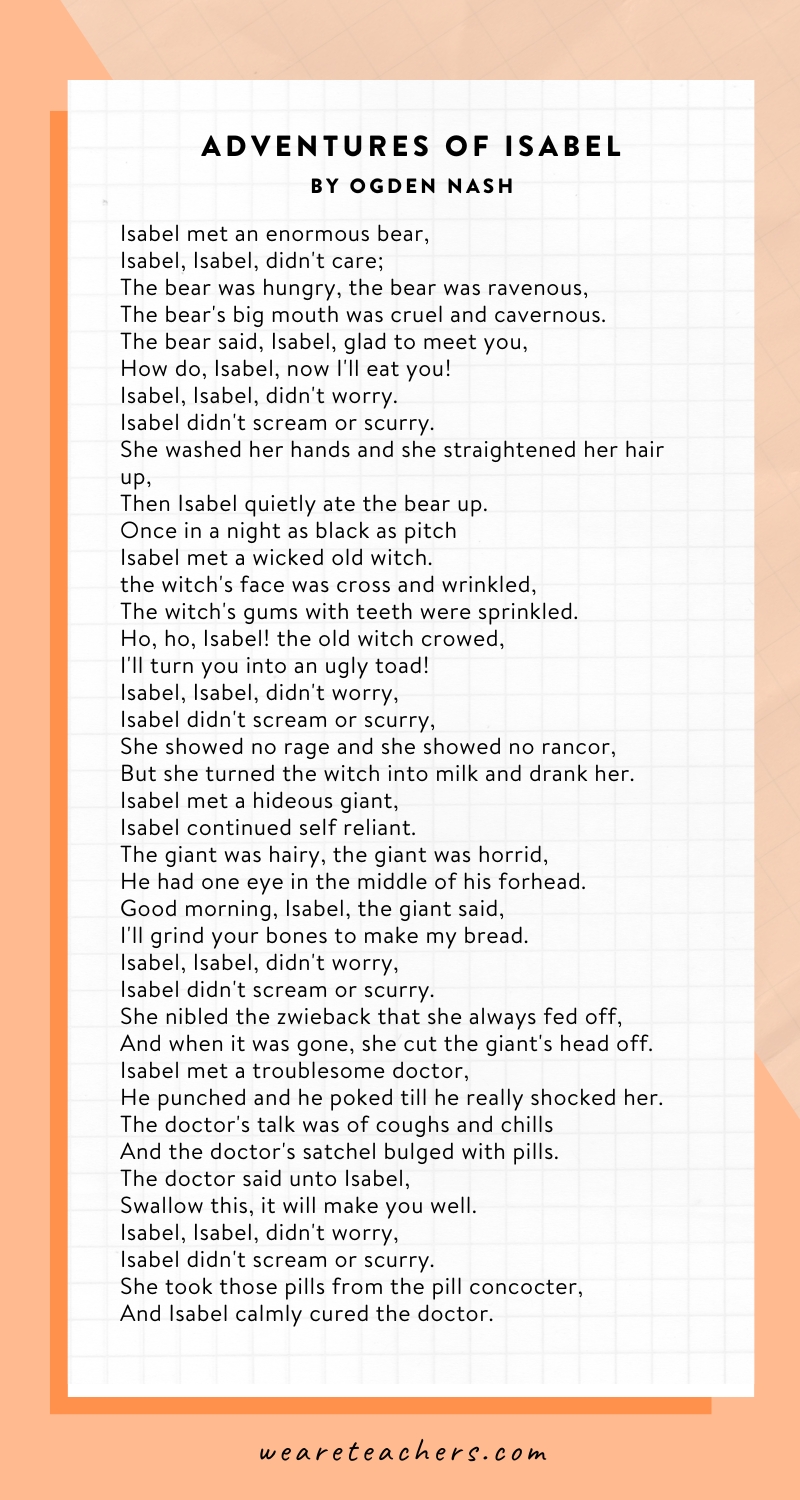
A great example of how poetry can be humorous and fun to read. Think Shel Silverstein for middle and high school students.
It’s silly to read an in-depth musing about going into double digits, but middle and high school students can see the humor in this poem, as well as the serious side.
A great read for Women’s History Month or any month. Angelou explores the stereotypes commonly associated with women and what they mean.
60. Harlem By Langston Hughes
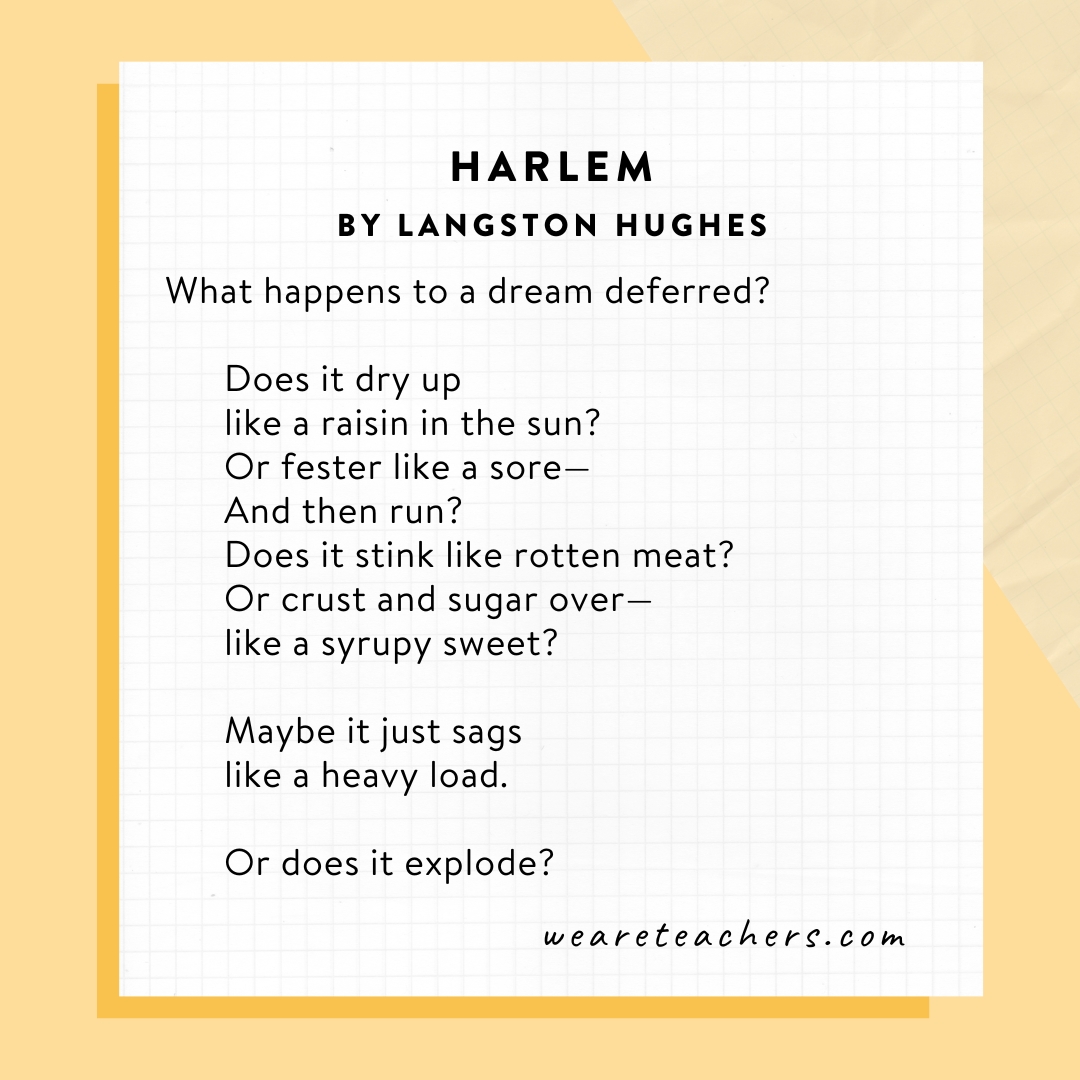
A poem we can all relate to – the feeling of wanting things to happen that don’t come true.
Do you teach younger students? Check out our favorite elementary school poems.
For more articles like this, be sure to subscribe to our newsletters!
[ad_2]
Source link
